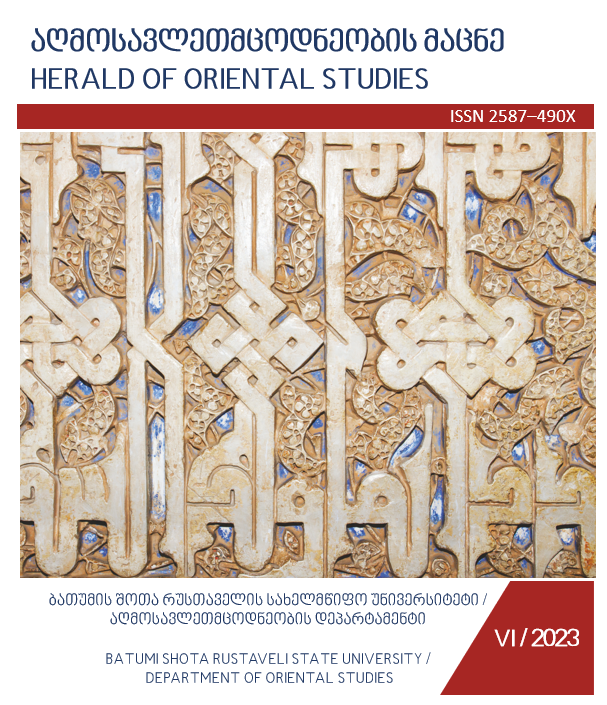ბუნება, ნივთები და აზროვნება: აღმოსავლური სიბრძნე და თანამედროვეობა (ალან უოტსი)
Nature, Things and Thinking: Eastern Wisdom and Modernity (Alan Watts)
Author(s): Vardo BeridzeSubject(s): Philosophy, History of Philosophy, Non-European Philosophy
Published by: ბათუმის შოთა რუსთაველის სახელმწიფო უნივერსიტეტი, ჰუმანიტარული მეცნიერებატა ფაკულტეტის აღმოსავლეთმცოდნეობის დეპარტამენტის „ელექტრონული ჟურნალი“.
Keywords: Human; Nature; Way of life; Items; Eastern wisdom;
Summary/Abstract: The world outlook of the 20th-century British writer and philosopher Alan Watts is rendered in the article. The analysis presented is based on his lectures concerning nature, things and thinking in the context of the influence of Eastern philosophy. Alan Watts is known for Western thinking as an interpreter of Eastern wisdom. His books and public lectures greatly enhanced the popularization of Eastern philosophy in the West. The book “Eastern Wisdom and Modernity” (1959) belongs to the most fruitful decade of Alan Watts’s life and creative work. He paved the road to such ideas and methods of knowledge which proved to be important in creatingthe cultural environment of the 60s and the following years. Watts studied the limits of human knowledge where cognition and knowledge link to the questions of yin and yang: “What is man?” “What is the sense of life?” “Why do we exist in this world?”.In the cycle of lectures dedicated to wisdom and modernity “Man and Nature” Alan Watts in order to explain the fundamental principles of Chinese philosophy refers to nature as an external world and speaks about the importance of the concepts of human nature and nature itself in man’s life. The author discusses the contrast between the classic Chinese and Western historical attitudes to the place of man in nature. Watts aims at proving the unity existing between the whole system of nature and man with the help of Eastern thinking and using the Eastern elements of reasoning.
Journal: საერთაშორისო სამეცნიერო ჟურნალი „აღმოსავლეთმცოდნეობის მაცნე“
- Issue Year: 6/2023
- Issue No: 1
- Page Range: 269-284
- Page Count: 16
- Language: Georgian

